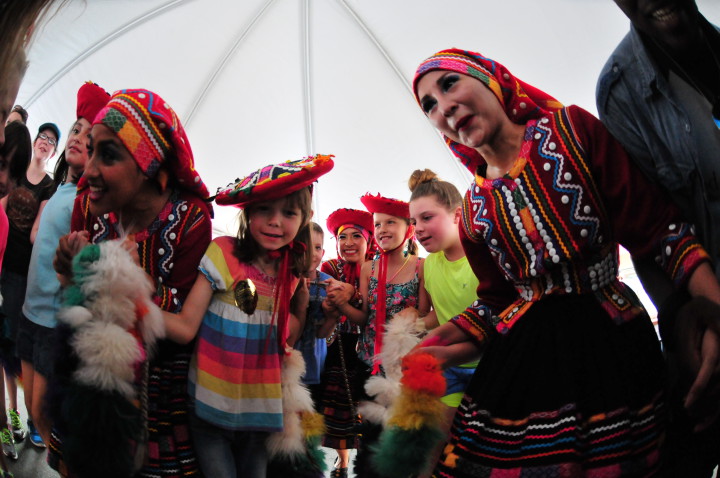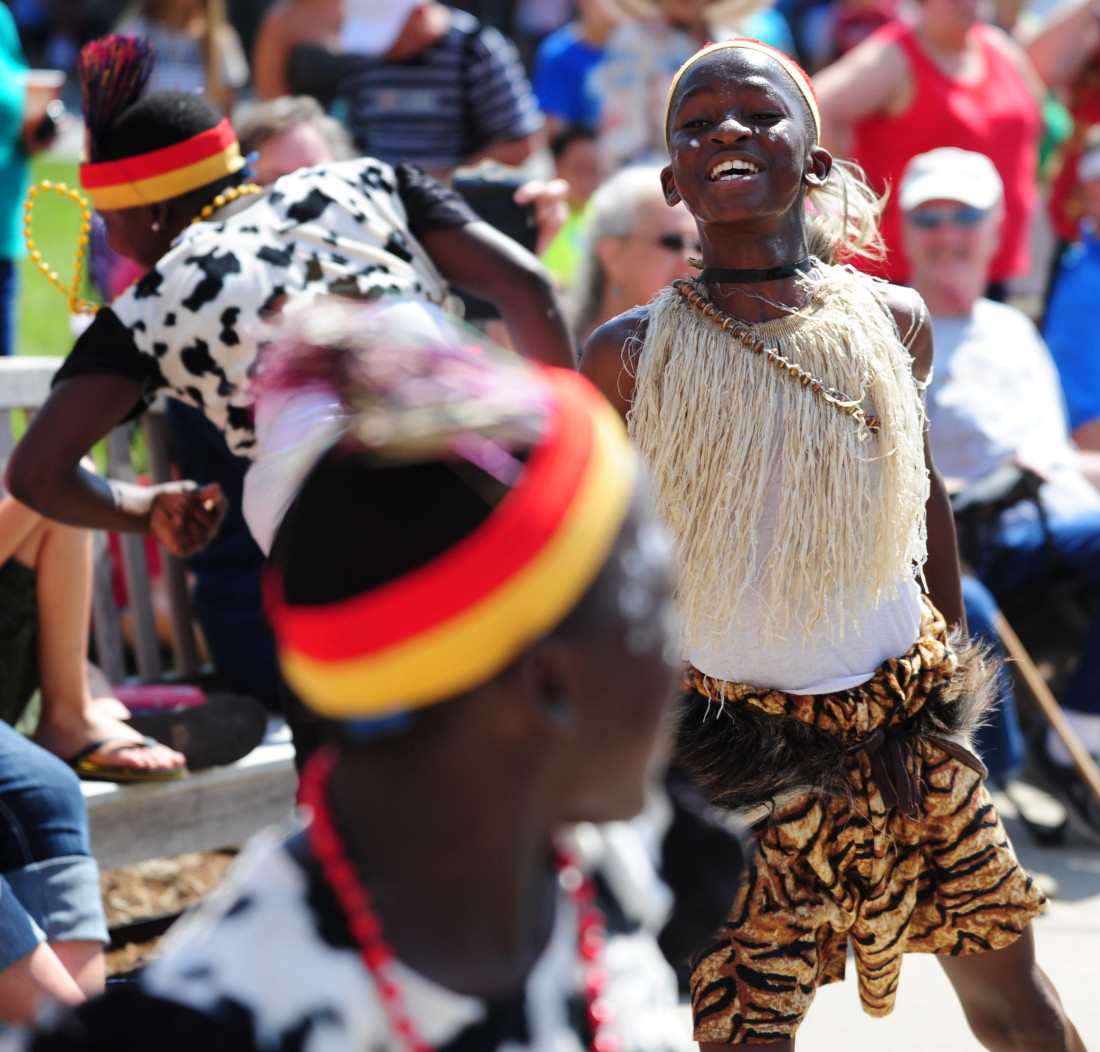If Waynesville — population 10,000, situated in Haywood County — seems like an unusual setting for an international dance festival, just imagine the same event taking place in Waynesville three decades ago.
“The mountains were fairly quiet, with little to no diversity,” says Folkmoot USA Executive Director, Angie Schwab. All that changed when the annual cultural festival came to town: “Folkmoot generated a lot of curiosity like a circus might.” The brainchild of Waynesville-based surgeon Clinton Border, Folkmoot also brought global flavor to an otherwise secluded area.
Now, decades later, Waynesville is a vibrant bedroom community to Asheville and a destination in and of itself. And its premier annual event continues to recognize the importance of cultural exchange. This year’s iteration, running from Thursday, July 20, to Sunday, July 30, features folk dance collectives from India, the Netherlands, Slovenia, Argentina, Russia, Israel, Taiwan and Wales. Traditional Appalachian and Cherokee groups will perform, too.
Folkmoot is like “getting to travel the world,” says Schwab. And you don’t have to break the bank or fight jet lag to do it. For instance, at the Friday, July 28, all-groups production at Diana Wortham Theatre in Asheville, festivalgoers can watch more than 200 international dancers and musicians from 10 countries showcase their talents on one stage.
But to really get in on the action, Schwab suggests Camp Folkmoot. Planned for Friday, July 21, the new, all-day workshop gives attendees a taste of international folk dances. Former state Sen. Joe Sam Queen is even expected to lead Appalachian square dancing lessons.
“He makes these funny cracks, like, ‘This is how hillbillies learned their manners’ and ‘This is how we taught people in the sticks to make friends,’” says Schwab. And, in part, Queen is being truthful. His grandfather formed the area’s first dance team — the Soco Gap Cloggers — in the 1930s. Back then, mountain people used large community dances as a reunion of sorts, gathering for clogging, hot dishes and fiddle tunes.
“Square dancing is a preliterate institution,” says Queen. “That’s where kids were taught to court and be pleasant. That’s where they engaged with their community.”

That same simple camaraderie can be found at Camp Folkmoot. Learning traditional dances requires attendees to join hands and sidestep their way through ageless patterns like the Old Black Snake and Ocean Waves. “You can’t help but have a good time,” says Schwab.
These carefree sessions are set off by more serious, thoughtful forums. Scheduled on both Friday, July 21, and Friday, July 28, the Cultural Wear Exhibition and Performance includes a panel discussion on traditional attire. According to Schwab, experts in ethnic apparel will unpack the significance behind garb. Consider color, for instance. Though deep crimsons are popular in Indian culture, the symbolism (e.g., womanhood, spirituality and purity) is not as overt.
Even body language can be misunderstood. Overseas, laughing “like an American” — loudly and with your mouth open — is considered strange, if not rude.
“Culture is an iceberg,” says Schwab. We see what’s right at the surface, but nothing beyond that. People are especially prone to Titanic-sized oversight if they’re too close to the issue. At least, that’s the case when it comes to Haywood County’s musical heritage.
Everyone knows WNC for its Americana rhythms — fiddles, mandolins and raspy vocals — but few recognize the “band culture” that thrives west of Asheville, where schools groom students to become nationally recognized flutists and drum majors. Folkmoot’s new Sunday Soiree Concert Series honors that dedication with a sound that’s heavy on the cowbell and light on the banjo. Set for Sunday, July 23, the soiree features stylings from Secret Agent 23 Skidoo and Empire Strikes Brass. All proceeds benefit Haywood County band students wishing to study music in college.
“We typically celebrate clogging and bluegrass, so it’s very different,” says Schwab. She’s nervous about how Folkmoot regulars will receive the soiree but says it’s “sending the right message” — a message dating back to Folkmoot’s beginnings.
Having wandered the globe, Border — Folkmoot’s founder — realized the transformative effects of traveling. “He knew that other cultures were wonderful and that there was nothing to fear,” says Schwab. He also recognized that cultural exchange (including swapping of varied sounds from within the region) would be good for the mountains, reducing xenophobia and helping to preserve heritage.
“He saw an opportunity for connection,” says Schwab. In fact, the word “folkmoot” comes from folcġemōt, an Old English term meaning “meeting of the people.” Having hosted more than 8,000 performers in the past 34 years, that descriptor seems fitting.






Before you comment
The comments section is here to provide a platform for civil dialogue on the issues we face together as a local community. Xpress is committed to offering this platform for all voices, but when the tone of the discussion gets nasty or strays off topic, we believe many people choose not to participate. Xpress editors are determined to moderate comments to ensure a constructive interchange is maintained. All comments judged not to be in keeping with the spirit of civil discourse will be removed and repeat violators will be banned. See here for our terms of service. Thank you for being part of this effort to promote respectful discussion.